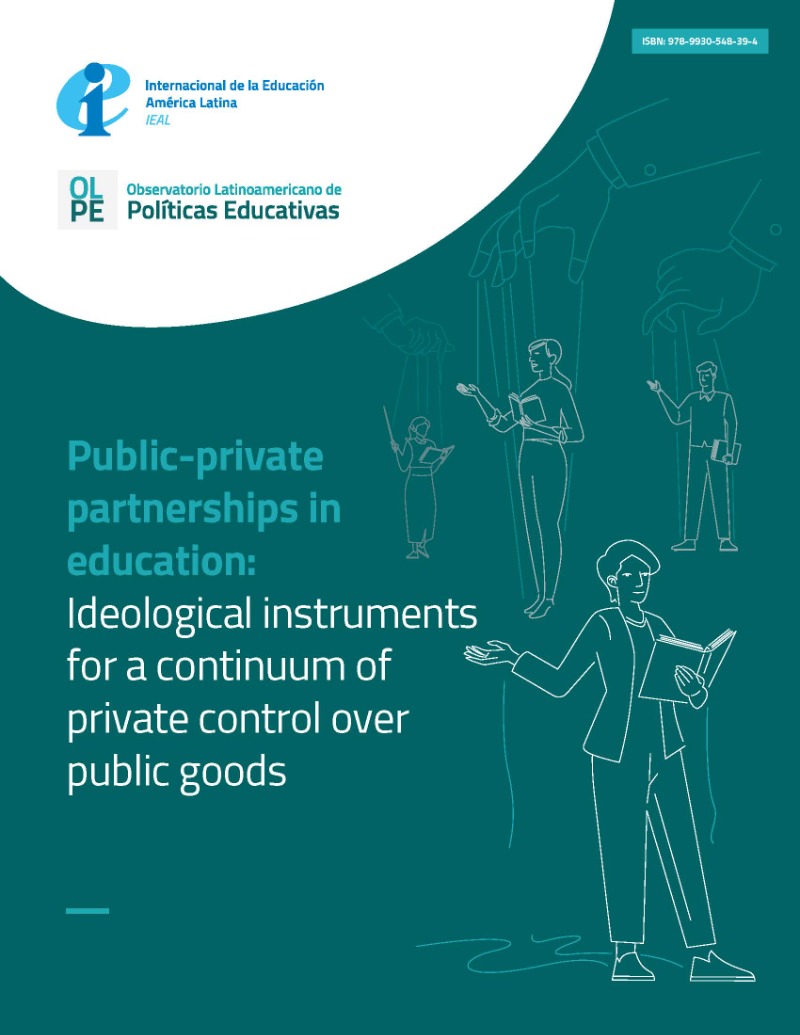
Public-private partnerships in education: Ideological instruments for a continuum of private control over public goods
Editorial:Internacional de la Educación para América Latina
Materia:CIENCIAS SOCIALES
Clasificación:Política y gobierno
Público objetivo:General
Publicado:2024-03-21
Número de edición:1
Número de páginas:0
Tamaño:241Mb
Soporte:Digital
Formato:Pdf (.pdf)
Idioma:Español
Inglés
Libros relacionados
Violencia de género: primera escuela de todas las otras formas de violencia en Centroamérica
Tendencias de privatización en América Latina: condiciones de posibilidad y resistencias (2013-2023) - Moschetti, Mauro; D. Brent Edwards Jr; Xènia Gavaldà Elias; Moog, Carl; Torras, Núria; Kouao, Lorraine
A trade union and Latin American perspective on the OECD recommendations on education - Observatorio Latinoamericano de Políticas Educativas (OLPE)
El pensamiento histórico como concepto de la educación histórica - Ramírez Achoy, Jéssica de los Angeles; Santisteban Fernández, Antoni
Reseña
In this document, the Regional Office of Education International Latin America uses several current Latin American examples to describe the way in which public-private partnerships (PPP) in education have become a platform from which international financial institutions, private business sectors, international cooperation organizations, religious groups and different multilateral actors gain access to decision-making on education policy in the countries of the region.
The publication provides key information on the role played by the United Nations and multilateral financial organizations such as the World Bank (WB), the Inter-American Development Bank (IDB) and
the Organization for Economic Cooperation and Development (OECD) in legitimizing and promoting non-state groups as providers of educational services that are funded publicly or through cooperation efforts. The Incheon Declaration and the United Nations 2030 Agenda generated greater pressure for states to co-design, co-implement and co-finance education policy, placing an emphasis on the participation of the private sector by ceding part of their functions to non-state actors or even by absenting themselves from a set of education policy decisions.
In this paper, we analyze how PPPs are nourished by a neoliberal narrative of persistent criticism of the state and of the public sector, while benefiting these private entities by opening up opportunities for
business in different sectors. In the particular case of education, PPPs assume the provision of many types of services, from teacher training, evaluation and curriculum design, to management and the administration of educational institutions, among others.




